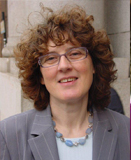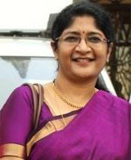- Ateneo
- Expolab
- Colloquium 2015
- Call for papers
- 3. Land rights and access to food: promoting human dignity for hunger reduction
3. Land rights and access to food: promoting human dignity for hunger reduction
“The hungry nations of the world cry out to the peoples blessed with abundance” (Paul VI, Populorum progressio 3, 1967). This cry is still with us, despite the huge economic, social and political transformations the world has witnessed. Hunger itself has changed, and needs to be better understood in order to be effectively addressed in courageous and innovative ways.
Among the crucial issues, we uncover the following:- Right to Food as a basic human right. What are the respective roles of States, economic agents, civil society organizations, UN bodies, Universities, and other institutions in making Food Security a reality? What is the responsibility of legal and policy instruments/frameworks.
- Human rights are increasingly being presented as the common language and the ethical substratum of international relations. At the same time, the universality, indivisibility and interdependence of human rights all serve as guarantees safeguarding human dignity. (Benedict XVI, Address to the UN Assembly, 2008). How can the poor be included as protagonists of their own development – and not simply recipients of aid? How does participation and representation become a measure for food security?
- Gender equality and food security - Cultural practices and access to food and nutrition among women and girls. Women’s empowerment as a tool to fight against hunger.
- Women’s rights to land and use of and control over productive resources – Right to property inheritance for women.
- The notion of Food Sovereignty has become prominent in national and international debates in view of realizing the right to food. How can its three dimensions – food sovereignty at the individual, household and national levels be practically reconciled? How can food sovereignty be implemented in politically distressed situations? How can international cooperation be enhanced to achieve food sovereignty?
- Hunger and conflict are often connected, in different ways. How can sustainable access to food for refugees, internally displaced people, people living in conflict situations be guaranteed?
- Access to unsafe, contaminated food and water remain a major cause of death in many low-income communities. How can food and water safety promote the right to food?
- Local knowledge and indigenous methods - How can indigenous farming methods, alternate farming methods/technologies, low cost farming etc., be enhanced to overcome hunger and food shortage?
- We face the persisting scandal of rural poverty and rural hunger, when supporting small scale farmers is recognized ad key to food security and poverty reduction. How to support sustainable investment in food production for the poor? How can the ever growing cities be fed, while addressing growing urban poverty?
- Access to land for the poor is threatened in many ways. How can large scale land acquisitions, inadequate definition of individual and collective rights to land use and land ownership, especially for women and indigenous people be dealt with?
- The phenomenon of ‘land grabbing’ is often connected with increased food insecurity. Impact of Land acquisitions and forced evictions on food security.
- How can transparency and control over large scale acquisitions that endanger food safety, community life, and ultimately human dignity be promoted?
- Land conflict management at the local level is frequently needed in post-war situations. How can this process be conducive to peace-building and democracy-building?
- Inadequate access to food is also experienced in relatively rich countries, for different reasons (inequitable distribution of income, marginalization, and exclusion). How this issue be dealt with while affirming each person’s dignity? Social protection/ welfare measures – Creating sustainable livelihoods through Employment generation, credit facilities, crop diversification, kitchen gardening, nutrition programmes, food distribution systems (Public Distribution System), cash transfers, Food storage and food grain banks,
- FAO Voluntary Guidelines on the Responsible Governance of Tenure of Land, Fisheries and Forests in the Context of National Food Security: how to make this recently approved international document a step towards eradicating hunger and promoting human dignity?
- Food and land have a meaning for personal and collective human identity, in addition to their material meaning. How can non-material motivations and beliefs contribute to reaching the goal of feeding each person and supporting full, integral human development?
Chair: SIMONA BERETTA, Università Cattolica del Sacro Cuore
Rapporteur: SANDRA JOSEPH, Stella Maris College, India
 Simona Beretta
Simona Beretta
Simona Beretta is Full professor of International Economics - Faculty of Political and Social Science - at Università Cattolica del Sacro Cuore she is also Director of the Master in International Cooperation and Development at ASERI, Postgraduate School of Economics and International Relations of Università Cattolica.
Her Research interests include ethics and economics, with applications to development issues and international economic policy making, international trade and financial structures and institutions, and regional integration..
 Sandra Joseph
Sandra Joseph
Dr Sandra Joseph is an Associate Professor and former Head, Department of Social Work, Stella Maris College (Autonomous), Chennai, India, with 25 years of teaching and research experience. A keen researcher in gender issues, she trains and works for building capacities of women and children, coordinated several action research studies and presented papers on women’s issues, drug dependency and other issues related to Social Work Practice and Education. In collaboration with IFCU since 1998, she has completed four major research studies which have had its main focus on drug dependency and related issues. Currently she is the National Secretary of the Indian Association of Social Work Educators and is an editorial board member for two International refereed journals titled ‘Illness, Crisis and Loss and Critical and Radical Social Work, both located in the UK.
Expolab
- Il Laboratorio
- Partnership
- Alta Scuola di Economia e Relazioni Internazionali - ASERI
- Alta Scuola per l'Ambiente - ASA
- Centro di Ateneo per la dottrina sociale della Chiesa
- Centro di Ateneo per la Solidarietà Internazionale - CeSI
- Le Università per Expo 2015 - Comitato Scientifico del Comune di Milano
- Expo - Santa Sede
- Expo - Unione Europea
- FIUC - IFCU
- Congregazione per l'Educazione Cattolica
- Eventi
- Progetti
- Percorso BISOGNI, PERSONE, AMBIENTI
- Percorso SVILUPPO DI UN MODELLO DI ALTA FORMAZIONE PER ESPERTI DI ANALISI DEL RISCHIO ALIMENTARE
- Percorso SVILUPPO LOCALE, SOLIDARIETÀ E COOPERAZIONE INTERNAZIONALE: responsabilità e prospettive di lavoro per un futuro sostenibile
- Progetto SHAREXPO
- Progetto CAFFEXPO
- Progetto COCOA AND CHOCOLATE CLUSTER - EXPO 2015
- Progetto ESMERALDA EXPEDITION
- Progetto L'ALFABETO DELLE ACQUE CON GLI OCCHI DEI BAMBINI
- TRE INSTALLAZIONI IN UNIVERSITÀ CATTOLICA NEL TEMPO DI EXPO
- Formazione
- Corso di perfezionamento in sicurezza degli alimenti
- CEEP- Cremona Executive Education Program
- Summer School Expo Milan 2015
- Ciessevi - Università del volontariato
- Rapporto fra cambiamenti climatici, agricoltura e sicurezza alimentare nei paesi in via di sviluppo
- UPA - Comunicazione d'azienda nella Network Society
- Alta Scuola per l’Ambiente
- fou_main 4930
- Colloquium 2015
- Call for papers
- 1. Global food security: new solutions for a cultivated planet
- 2. Sustainable use of resources (water, land and environment)
- 3. Land rights and access to food: promoting human dignity for hunger reduction
- 4. Access to food, access to information
- Scientific committee
- How to participate
- Press review
- About us
- Contacts
- PHOTOS
- Rassegna stampa
- Notizie
